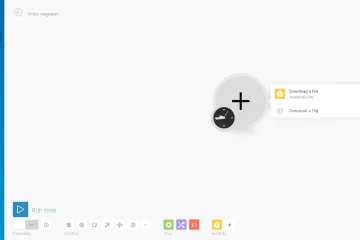Living in Dubai offers migrants many advantages related to the prospects for professional development and career building. The multinational state, in which ethnic Emiratis make up 15% of the population, is focused on welcoming foreigners who are ready to work in the local market and invest their finances in profitable projects.
Standard and quality of life in Dubai in 2024
Every year, the UN publishes the Human Development Index rating, in which the UAE consistently occupies high positions. The purpose of the study is to identify countries with the most favorable living conditions. Experts indicate that the ultimate goal of the development of any state should be not only economic indicators, but the opportunities available to a person.
The UAE receives higher positions in each new selection, which confirms the stability of the government,the accessibility of healthcare and education, Increasing population average life expectancy and its quality, and a rapidly growing economy. In the latest rating released by the organization, the UAE ranks 17th with an index of 0.937 and a rating of “very high”.It is important to remember that the nation’s indication is in first place – 0.967, which confirms a small difference.
The average salary in Dubai exceeds 3000 USD, which is rationally related to the cost of living. The unemployment rate is relatively low and reaches only 3.1%, while in many EU countries the rate is more than 5%. The nation is regarded as the epicenter of the oil sector, but in fact, in recent years, the government’s policy has changed in this regard. The government is looking for alternative options for increasing the economy and is developing profitable programs to support business and attract foreign investment.
Pros and cons of living in Dubai
Dubai is an emirate, real life in which is original due to the multinationality of society, cosmopolitan ideology, amazing rates of economic growth and attraction of foreign capital. It still remains a mystery how ultra-modern cities with the most favorable living conditions were able to grow so quickly in the middle of the desert. Despite the fact that to live in Dubai you need to have at least 5,000 USD per month, migrants actively go to the most popular city. After all, in this location it is possible to achieve a high level of earnings, wealth and comfort. It’s possible to weigh the benefits and drawbacks of residing in the UAE by the criteria listed below.
Social protection
Social policy in the UAE is primarily aimed at the indigenous population. Citizens of the country can count on effective protection from the state, they are provided with a large number of benefits for utility bills, unemployment benefits, child care, pensions, free medicine, education, assistance to young families, long-term loans with minimal interest.
For visitors who arrive in the nation for up to 3 months, none of the listed privileges are available, and residents can count on partial assistance from the state. Part of the social benefits are covered by a fund financed by employers, so applicants should carefully study the work contract and make sure that important guarantees are available.
Labor market
The country has a minimal unemployment rate, which finally stabilized after the end of the pandemic. The developed labor market is largely filled with foreign labor. Vacancies are available in any area, but most migrants focus on the wholesale and retail trade, construction, and real estate industries. When searching for a job, use job search sites such as Layboard.
The Ministry of Human Resources and Emiratisation is developing effective solutions to expand the market – for example, employers can create temporary positions, and employees have the right to work in several companies at the same time, unemployment insurance has been introduced.
Salary level
The minimum wage in the UAE starts from 1190 USD, and the highest average reaches 6500 USD. The salary level may vary depending on the industry and position, but in general it is decent across the country and stays at around 5000 USD. You can count on the indicated salary if you work in the field of construction and real estate, finance and banking, information technology, insurance or medicine. In the service industries, transport, logistics, industry, salaries range from 3000 to 4500 USD. If you are looking for employment in the handyman specialty, then Click Here.
Medicine
The state has a high level of development of the medical industry, which is based on two goals of the government – to satisfy the locals’ demands and make the country a center of medical tourism. Clinics are equipped with state-of-the-art equipment, specialists are highly qualified and experienced, the infrastructure is new and efficient, and the introduction of information technology improves patient comfort, speed and quality of services. Dozens of hospital reconstruction and construction projects have been launched in the UAE, and the emirates are rapidly developing the sector due to reasonable competition.
Education
Among the principal spheres of national activity over the past decades has been the development of education, and therefore the formation of an inclusive and prosperous society. Education standards have been transformed in accordance with global standards, which allows graduates of local schools to easily enter any university abroad, and universities to compete with leading institutions in the United States and Europe, and work on joint programs. The country has private and public secondary schools, higher education institutions, and international commercial institutions are especially popular.
Cost of living
Based on the level of wages, living in Dubai costs accordingly. The nation has all the resources to make a high profit, but significant expenses are also required to ensure your stay in the country. A month of living in Dubai for one person will cost approximately USD 1,090 excluding rent for housing. You can rent a one-room apartment, depending on the distance from the center, for USD 1,200–2,000/month. Real estate prices start from USD 2,400 per square meter. Utilities cost USD 200 per month, a meal in a restaurant for two is USD 81, and a basic food basket for several days is about USD 50.
Taxes
One of the main features of the UAE tax system that attracts migrants is the absence of income tax on individuals. Only corporate tax is levied on the net profit of commercial companies, whose rate is determined by the quantity of revenue – up to AED 375,000 / USD 102,000 zero percent, and above this figure – 9%.



